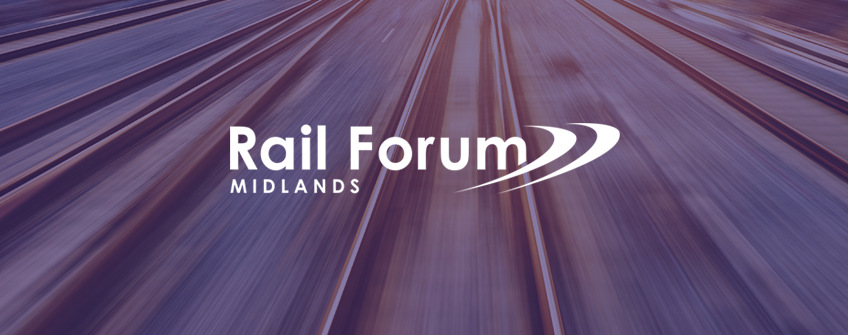A new challenge for SME businesses is being launched to help make transporting goods on the UK’s railways cleaner and greener.
The University of Derby, Rail Supply Group, Rail Forum Midlands and Tarmac are spearheading the challenge to identify Opportunities for Decarbonising Freight by inviting SMEs (small and medium-sized enterprises) to put forward ideas for solutions and find opportunities to work together.
The launch takes place online at 3pm on 21 October and the task set for SMEs is linked to the Government’s Rail Sector Deal, which gave the industry a number of targets back in 2018, including delivering a sustainable rail network and promoting SME growth through collaboration.
The University of Derby’s Rail Research and Innovation Centre opened in 2019, backed by the D2N2 Local Growth Fund, with the aim of promoting innovation and collaboration within the rail sector supply chain industries across the region.
In the same year, the University joined forces with Derby city and Derbyshire county councils to unveil the DE-Carbonise project, an extension to the successful D2EE Low Carbon initiative. Supported by the European Regional Development Fund, the three-year project is designed to help local businesses reduce their carbon output.
Professor Warren Manning, Provost – Innovation and Research at the University of Derby, is one of the members of the steering group overseeing Rail Sector Deal pilot projects in the Midlands.
He said: “The University is very much at the forefront of the work being done regionally and across specific industry sectors to cut the nation’s carbon output. Working with the Rail Forum and Tarmac, as well as a number of other industry partners, we are keen to show that rail has got enormous potential to help meet the UK’s zero carbon emissions target date of 2050.
“The evidence is there to show how much ‘cleaner’ it is than transporting goods over long distances by road. However, to meet the rail sector deal aim of a sustainable rail network, we need to find ways of addressing a range of complex issues facing our rail network which not only incentivise the use of rail for a larger share of the nation’s freight journeys, but also make great strides in the pursuit of carbon-free transport.
“The SMEs we hope will take part in this challenge will offer great expertise and specialist knowledge, the sum of which will deliver real innovation for the rail sector.”
According to figures from the Office of Road and Rail, around 68 million tonnes of goods were transported in 209,000 journeys by rail the UK in 2019/20. Historically, coal was the primary cargo of the rail freight network, but since the UK has reduced the amount of coal mined and consumed, rail has begun transporting an increasing volume of domestic and household goods, which now make up around 40% of the total, and construction materials, which account for just over one quarter.[1]
Using rail meant that seven million lorry journeys were avoided last year in the UK. However, 80% of all freight is still transported by road, most commonly in heavy goods vehicles with CO2 emission levels around six times higher than those from rail journeys.[2]
Elaine Clark, CEO of Rail Forum Midlands said “We are excited to launch our second SME challenge as part of the Rail Sector Deal Midlands Pilots and look forward to working with the University of Derby and Tarmac, along with other major organisations in the rail industry. We are also particularly looking forward to seeing some of the collaborations that will be formed and how they tackle this very ‘real’ challenge in the rail freight market.”
Chris Swan, Tarmac Head of Rail, said: “The construction industry has a key role in supporting the economic recovery and our desire is to help ‘build back better’. Our commitment to rail is vital to this as we look to move more tonnage in the future.
“The great work done by the University of Derby has shown that, as well as increasing the amount we move, it is vital that we look to improve our rail operation and this type of collaboration is an excellent way for us and our partners to collaborate with SMEs in the supply chain to deliver real benefit to the rail freight market, in the short, medium and long term.”
For more information about the SME Challenge, visit the Rail Forum Midlands website.
ENDS
[1] https://dataportal.orr.gov.uk/media/1738/freight-rail-usage-performance-2019-20-q4.pdf
[2] Ibid. and https://www.railfreight.com/policy/2020/01/08/rail-freight-produces-6-times-less-co2-than-truck/?gdpr=accept

